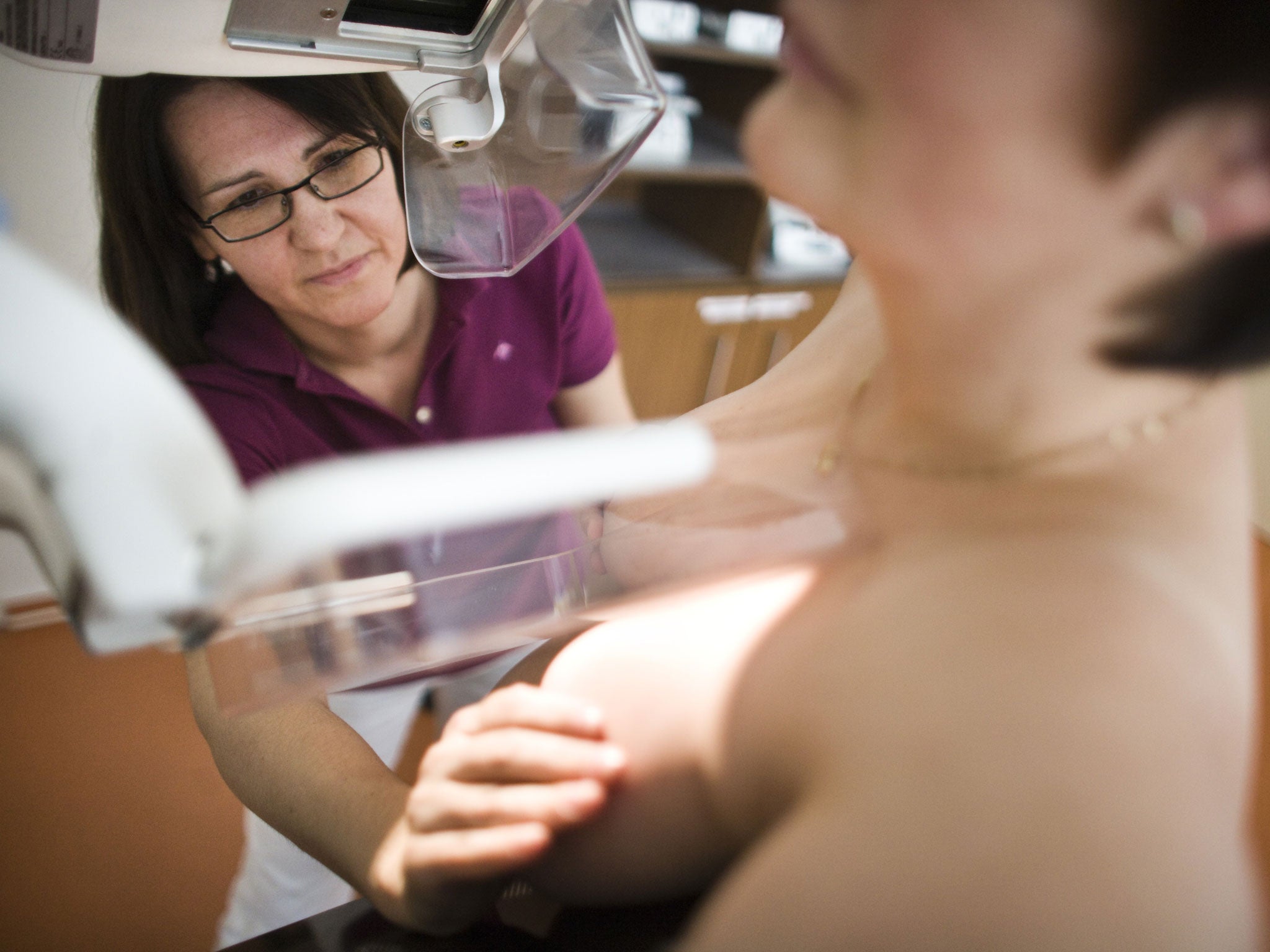Middle classes get quicker cancer care
Fear, and worries about wasting doctors' time, delays women in poorer areas from presenting for breast tests, study shows

Your support helps us to tell the story
From reproductive rights to climate change to Big Tech, The Independent is on the ground when the story is developing. Whether it's investigating the financials of Elon Musk's pro-Trump PAC or producing our latest documentary, 'The A Word', which shines a light on the American women fighting for reproductive rights, we know how important it is to parse out the facts from the messaging.
At such a critical moment in US history, we need reporters on the ground. Your donation allows us to keep sending journalists to speak to both sides of the story.
The Independent is trusted by Americans across the entire political spectrum. And unlike many other quality news outlets, we choose not to lock Americans out of our reporting and analysis with paywalls. We believe quality journalism should be available to everyone, paid for by those who can afford it.
Your support makes all the difference.Poorer women with breast cancer are less likely to be diagnosed quickly than women from affluent homes, according to new research. As a result, every year more than 450 die sooner than if they were diagnosed at the same time as better-off women.
Despite having similar cancers and screening procedures, women from poorer households were diagnosed later than wealthier ones, researchers at Leicester University found. Early diagnosis vastly improves sufferers' chances of surviving the disease.
Researchers suggest that one reason for the different survival rates might be because women from deprived backgrounds delay reporting symptoms to their doctors.
"Such patient delays may reflect differences in awareness, but some may also reflect psychological barriers, such as fear of wasting doctors' time and fear of dying, or impressions of cancer incurability," say the researchers, who studied nearly 21,000 women diagnosed with breast cancer.
Their results showed fewer women in the more affluent groups were diagnosed in the later stages, across all ages. The researchers estimated that 454 deaths could have been postponed beyond five years by eliminating differences in the stage at which they are diagnosed.
"Affluent women were less likely to be diagnosed in an advanced stage," says Dr Mark Rutherford, who led the study. "Relative survival decreased with an increasing level of deprivation," he said.
Reducing inequality when the cancer is diagnosed would result in a "substantial reduction in the number of deaths in the short term", he added. Dr Rutherford said it was important to raise the awareness of cancer signs and symptoms among all women.
Jayant Vaidya, reader in surgery at UCL and a consultant surgeon who specialises in the diagnosis and treatment of diseases of the breast, said: "If all women were diagnosed earlier, it would also mean they would need less-aggressive treatment, with fewer side effects. We know that radiotherapy, for example, can adversely affect the heart, an effect that is particularly important when cancers are diagnosed early.
"I don't believe that access to the treatment is significantly different between classes in the UK, but it may be a combination of factors. The less deprived are generally more health-conscious – eg take more exercise, eat sensibly, and have a more disciplined lifestyle – and this could affect the outcome from cancer.
"This report also shows that more than 70 per cent of cancers were not detected by screening, which suggests that it is not a very efficient way of detecting cancers that matter.
"We need more research into finding cancers at the right time. While increasing awareness will help, it should be done without raising anxiety," he added.
Nick Ormiston-Smith, Cancer Research UK's statistics manager, said: "This research provides further evidence that deprivation affects a woman's chance of surviving breast cancer. More needs to be done to tackle this inequality to ensure everyone has the same chance of surviving breast cancer, no matter where in the country they live.
"Diagnosing and treating the disease earlier is key to improving a woman's chance of surviving, and we must ensure this is a reality for all."
Join our commenting forum
Join thought-provoking conversations, follow other Independent readers and see their replies
Comments